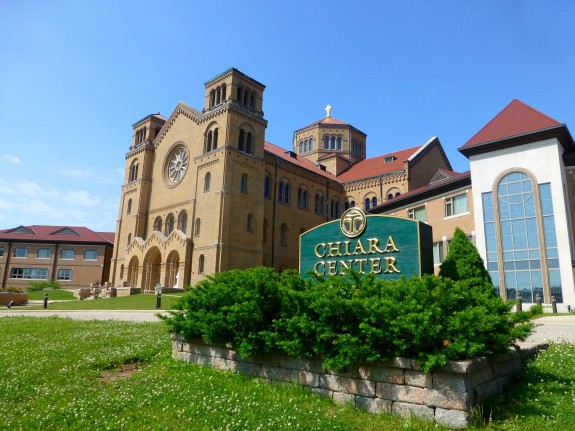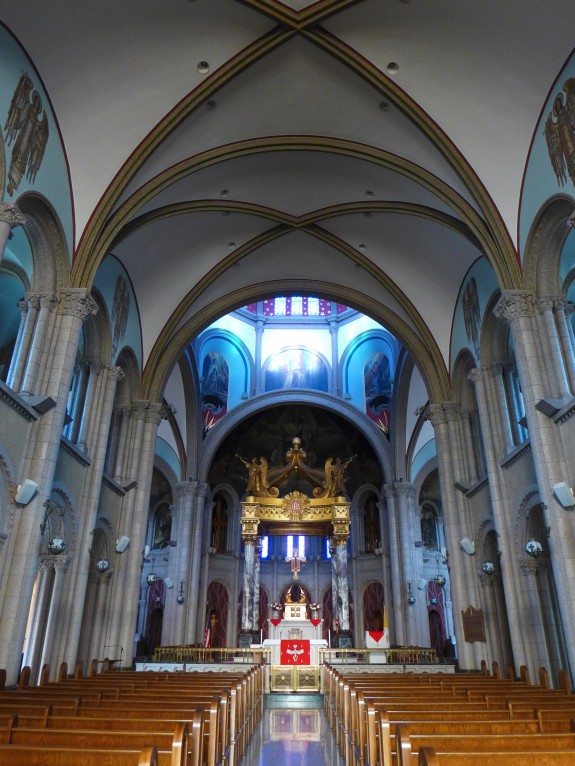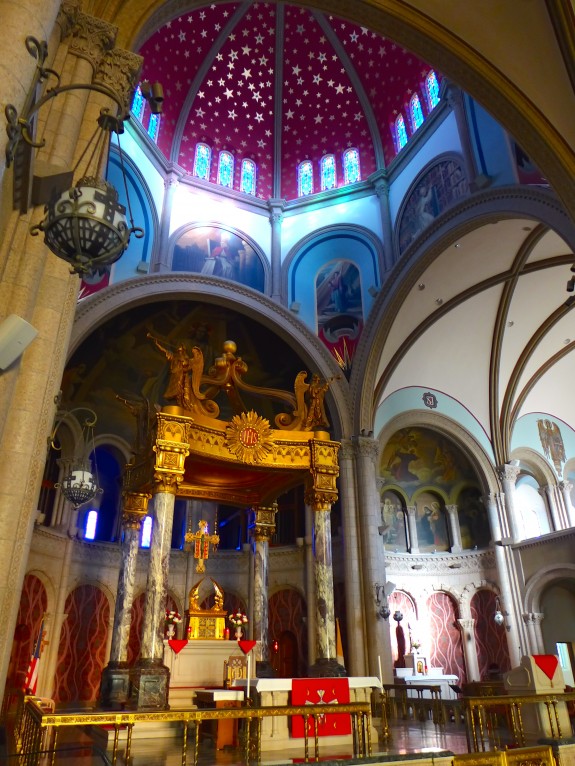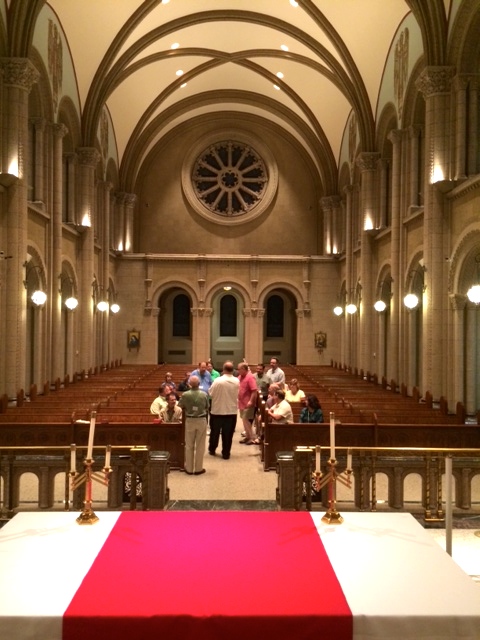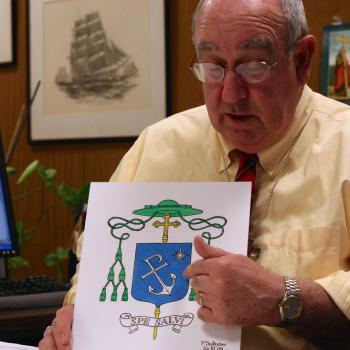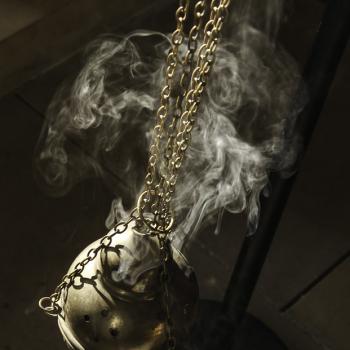This is a big ordination weekend for several dioceses, where I know they’ll be ordaining new deacons later today; I hope to have pictures and news about that later this weekend.
Meantime, I’m privileged to be spending a few days giving a retreat to the deacon candidates of Springfield, Illinois, who will receive the ministry of lector from Bishop Thomas Paprocki this morning.
The rite will take place in the beautiful chapel of the Chiara Center, the St. Francis of Assisi Church, which once served as the motherhouse of the Hospital Sisters of St. Francis, who lived here while caring for the seriously ill at a tuberculosis sanitarium in Springfield. It’s now a retreat center and nursing facility.
The chapel is a stunner.
We gathered last night for a brief rehearsal before today’s rite.
I hope to post more pics later.
Meantime, providentially, Deacon Bill Ditewig is interviewed in the current issue of U.S. Catholic, with some great observations on the diaconate:
How does a deacon’s role in the community inform what a deacon does at Mass?
The only thing liturgically that the deacon is required to do is proclaim the gospel. There are other actions he might do during the liturgy that could also be performed by other ministers.
But there’s a logic to the deacon doing them, especially the general intercessions. Why? Because it ought to be the deacon who really knows the needs of the community and knows the needs of the people. Ideally, it would be the deacon who’s composing those prayers and personalizing them to the particular community he’s with, so there’s a connection there.
And there ought to be something in the way I preach that’s a bit different from the way the priest would preach. I don’t just mean saying, “I took my family to Disney World last year.” What is your experience in the world showing you? What can you give an insight on that a priest can’t because he’s not in that environment?
If the deacon is already perceived as the servant to the community in every sense of that word, when you see that servant in action liturgically, it cements that. People see the deacon and think, “That’s also the guy who does that prison stuff,” or, “This is the guy who goes out and works the soup kitchen, and now he’s challenging the rest of us, in his homily, to join him.” It all comes together.
It’s significant that the deacon gets the last word at Mass. Ite, missa est does not mean “Go, the Mass has ended.” Ite is a Latin word that a Roman commander would use to address his troops. It means “march.” And missa est means the church is being sent. He’s saying, “We’ve got to link this Eucharist with mission. Let’s go do that.”
Sometimes a deacon will show up before Mass and the priest will say, “I don’t need you today.” Yes, you do. Would a priest go to Mrs. Smith and say, “I don’t need you to read today, I’ll do the readings”? No. Just as you need laypeople present and active, you need the deacon. That’s how we achieve our Catholic identity as a community—we see ourselves for this garden that we are.
Meantime, pray for the candidates from Springfield — and all men embarking on this journey, including those who will be ordained today.

